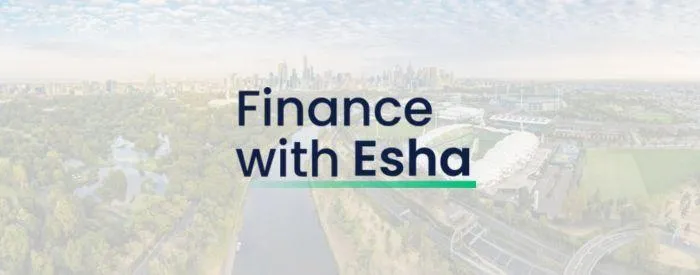Blog Posts

How Much Do You Actually Need to Buy Your First Home in Victoria?
For most first home buyers, the biggest hurdle isn’t affording the mortgage — it’s pulling together the deposit. This is something I see every single week, and a recent meeting with a young couple really highlighted just how common (and fixable) this concern can be.
They came in after doing a bit of research, thinking they were probably ready to buy, but unsure about a few critical details:
How much deposit did they actually need?
What would their borrowing power look like?
Could they afford the monthly repayments?
What government schemes might help them?
These are exactly the right questions to be asking. And while every buyer's situation is different, the answers often follow a similar path — especially for those buying in Victoria.
Why the Deposit Is the Hardest Part
Plenty of clients I meet could comfortably service a mortgage — especially when their expected repayments are similar to what they’re already paying in rent. But the challenge is saving the lump sum for a deposit and upfront costs like stamp duty.
There’s still a common misconception floating around that you need a 20% deposit plus stamp duty to get into the market. That might have been true in the past, but these days, with the help of government schemes, that figure can be significantly reduced.
Two Key Schemes for First Home Buyers in Victoria
If you’re eligible, two government schemes can massively reduce the upfront cost of buying a home:
1. Stamp Duty Concession (VIC State-Based)
Pay zero stamp duty on properties up to $600,000.
Get a partial reduction for properties between $600,000–$750,000.
Just be aware it’s a sliding scale — at $605k, you’ll pay next to nothing; at $749k, you’re paying almost the full amount.
2. First Home Guarantee Scheme (Federal)
Buy with just a 5% deposit and pay no Lenders Mortgage Insurance (LMI).
Available for properties up to $800,000.
Income caps apply: $125,000 for singles, $200,000 for couples — based on your last financial year’s Notice of Assessment (not your current income).
Labor has promised to lift the purchase cap and remove income limits, but for now, those are the rules.
What This Means in Real Dollars
Using those two schemes together, here’s how the deposit requirement can vary depending on the purchase price:

Assumes a 6.00% interest rate over 30 years, principal and interest repayments.
As you can see, the deposit doubles between a $600k and an $800k property. So if you’re flexible on what and where you’re buying, finding something in the $600–$650k range can make getting into the market significantly more achievable.
Final Thoughts
The key takeaway? You probably don’t need as much as you think — and you definitely don’t need 20% plus stamp duty in a lot of cases,
The right combination of price point and government support can help you buy sooner than expected. If you're wondering whether you qualify for any of the schemes mentioned here, or if you just want to run your own numbers, feel free to reach out. I'm always happy to chat.
Need help figuring out what’s doable for you?
Drop me a message here or send me an email at [email protected] to get started.
Let’s chat.
I’ll give you the clarity to make your next lending decision with confidence.

